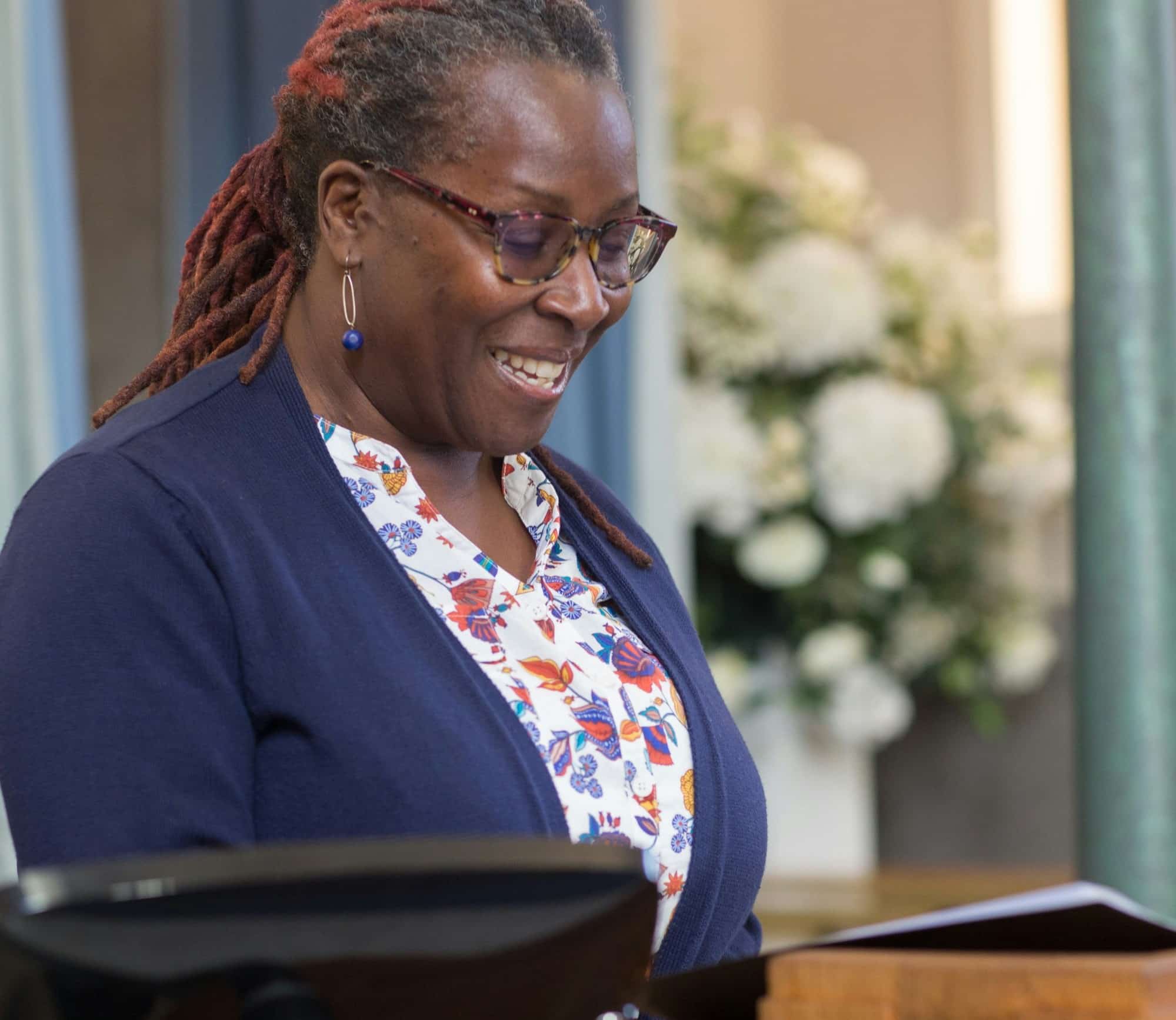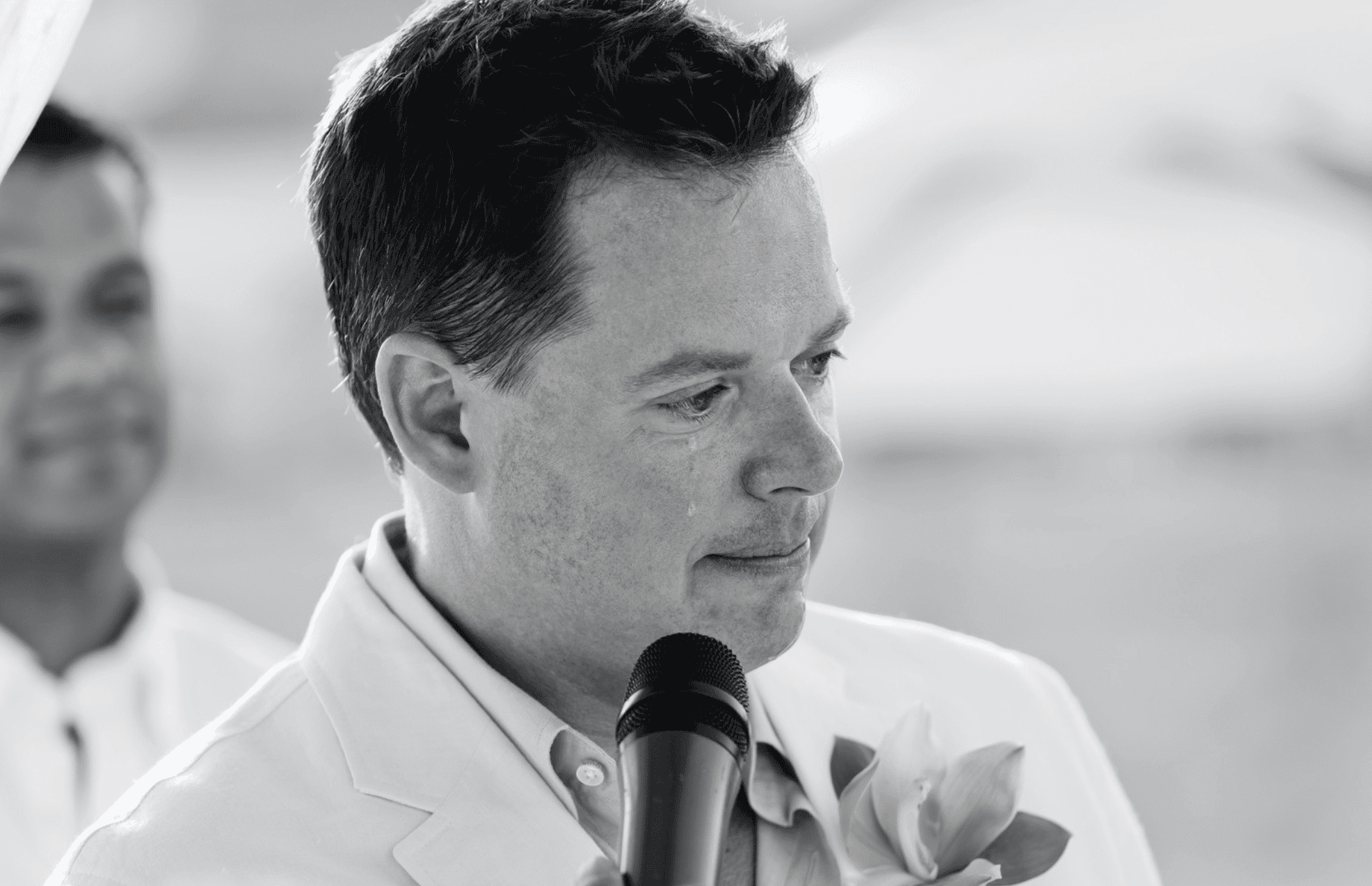Home » How To Write A Eulogy
(*Of course, if you’re looking for more than ‘advice’, check out all the different ways the Speechy team can help you write & deliver a great speech. Or check out our new AI-powered team member, SpeechyAI.)
‘(Of course, if you’re looking for more than ‘advice’, check out Speechy’s bespoke speechwriting service. We also have a range of excellent speech templates that might be just what you need.)
(*Of course, if you’re looking for more than ‘advice’, check out our eulogy writing service or our eulogy template.)
(Of course, if you’re looking for more than ‘advice’, check out Speechy’s bespoke speechwriting service. We also have a range of excellent speech templates that might be just what you need.)

I’ve also delivered one myself. When I stood up to give my father’s eulogy, it felt like the hardest speech I’d ever given. But also the most important. And that’s why I want to help you get it right.
A eulogy is a speech delivered at a memorial or funeral service that celebrates and remembers the life of someone who has died.
It can be formal or informal, funny or solemn, personal or reflective. Most importantly, it should feel authentic to you and true to them.
It doesn’t need to detail their entire life history. Think of it as a highlights reel – a flavour of who they were, the impact they had, and the essence of their character. It’s about painting a picture, not compiling a timeline. Think of the moments that will bring the person vividly to life.
And, if you can, include a few unexpected facts or quirky memories that surprise the audience or make them smile.
At Speechy, we often tell clients that planning is everything. That’s true for eulogies too. Before you write anything, begin with two things:
Next, ask friends and family to contribute stories too. You’ll be amazed by what you learn.
When helping clients, I sometimes encourage them to send a short email to old friends or colleagues – people who knew a different side of their loved one. Indulge in the process if you can.

This is the bit where many people freeze up. But it doesn’t need to be perfect. The best eulogies are heartfelt and honest, not polished performances.
Here’s what to include:
Don’t worry about being a poet. But also don’t rely on clichés. Say something only you could say about them.

You can follow a traditional structure or choose a theme.
A theme can help tie everything together. For example:
I’ve helped clients use themes like gardening, resilience, or even bad jokes to craft a speech that feels cohesive and memorable.

Start simply:
“Hello, I’m Matt’s daughter. Thank you for being here today. It means so much to us all.”
Then set the tone. If humour suits the person, don’t be afraid to use it.
“If Dad were here today, he’d be laughing at the fuss. Or more likely, telling us what music to play and how loud.”
Follow it with a line or two that connects you to the audience. Mention the significance of the day and your shared grief, but also your desire to celebrate a life. You’re creating a safe space where both tears and laughter are welcome.
You don’t need to be profound. Just be honest. Say what they meant to you. Say what you’ll miss.
If it helps, use a quote to sum things up. Or speak directly to your loved one.
“Mum, you were fierce and funny and wise, and I hope I make you proud. Thank you for everything. I’ll miss you every day.”
Some people find comfort in visualising their loved one listening in and they write the last lines as if speaking directly to them. It’s personal, powerful, and deeply comforting.
Your ending might also offer a hope for the future, or a wish that their spirit and lessons will live on through the people in the room.

Although your speech should be unique, using one or two great quotes can elevate a speech and give your message clarity. The same applies here.
“What we have once enjoyed deeply we can never lose. All that we love deeply becomes a part of us.” – Helen Keller
“The song is ended, but the melody lingers on.” – Irving Berlin
“To live in hearts we leave behind is not to die.” -Thomas Campbell
“Grief is the price we pay for love.”- Queen Elizabeth II
“Perhaps they are not stars, but rather openings in heaven where the love of our lost ones pours through and shines down upon us.” -Inuit Proverb
You can find more suitable quotes at BrainyQuote & Goodreads.
Between 1,000 and 1,500 words is typical. That’s around 7-10 minutes when spoken.
But please remember- less is more. Don’t try to mention every cousin or every achievement. Focus on the essence of who they were.

When I gave my dad’s eulogy, I cried in rehearsal. I read it to my husband, then again to a close friend. And on the day? I held it together. Just.
My advice? Practise aloud. Say the words until they become familiar. That way, on the day, you’re reciting something you know deeply – not improvising through grief.
If possible, read it to a small group of close family beforehand. It makes the real thing feel less daunting.
Rehearsal is vital. Say it so many times that you’re speaking on autopilot. That way, when emotions hit on the day – and they will – your brain and mouth still know what to do. It’s a technique we often recommend to clients when they’re delivering speeches with emotional weight. Rehearse until the muscle memory kicks in.
Use notes. Don’t wing it.
Speak slower than you think you should. Breathe. Pause when you need to.
And remember, you don’t need to act brave. If you cry, you cry. That’s human.
Body language matters too. A simple shrug or eyebrow raise can do as much work as a poignant sentence. If a humorous anecdote needs space to land, pause, smile, or let your expression do the talking.
If you feel yourself getting overwhelmed, look up. And have a glass of water nearby.
You don’t need to be perfect. People are there for your words, not your performance.

Writing and delivering a eulogy is hard. But it’s also a gift – to your loved one and to everyone who hears it.
If you need help, our Eulogy Writing Service is here. We also offer an Edit My Speech option if you’ve made a start but want to make it better.
If you just need a framework to work with our Eulogy Template might help.
Remember: you don’t need to be poetic or profound. You just need to speak with love.
That’s more than enough.
The Speechy team are TV-trained scriptwriters/comedians by trade & we’ve helped 1,000s of speakers around the world deliver their dream speech.
Our advice has been quoted everywhere from The New York Times to Grazia and from Forbes to The Observer. Our founder has also featured on the BBC Sounds’ Best Men podcast with Jason Manford and written ‘The Modern Couple’s Guide to Wedding Speeches’, published by Little, Brown.














